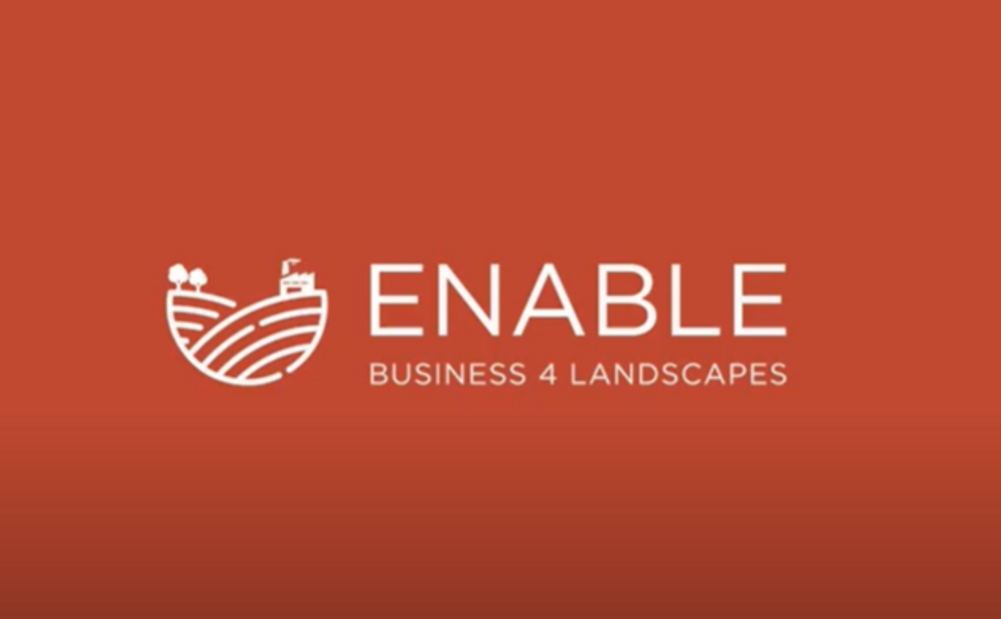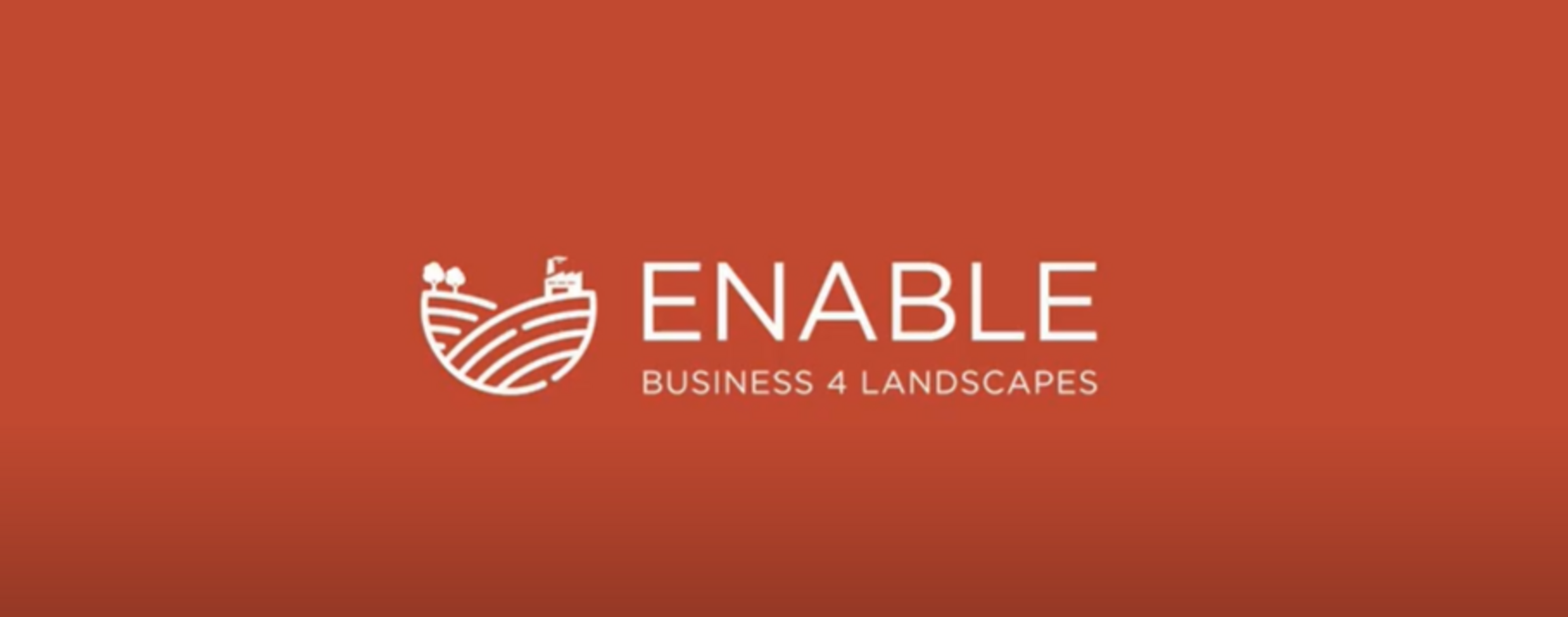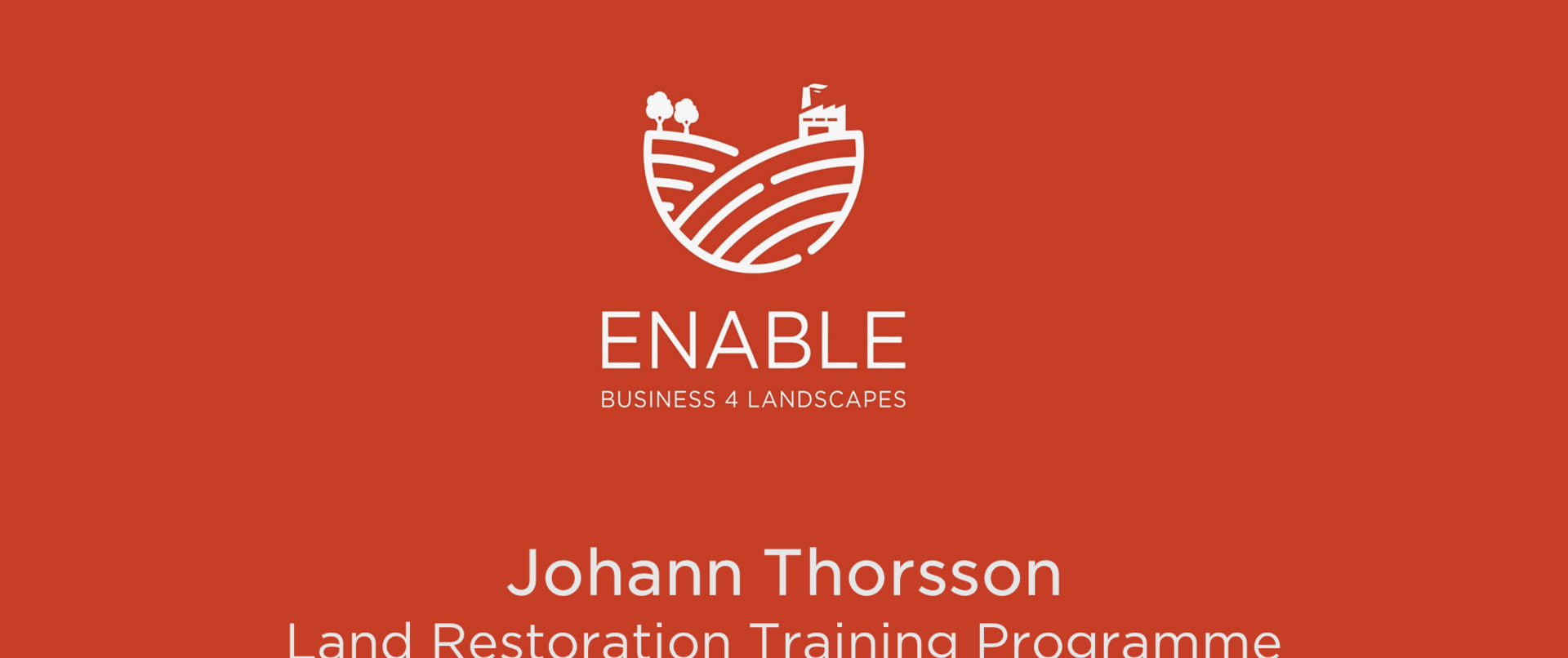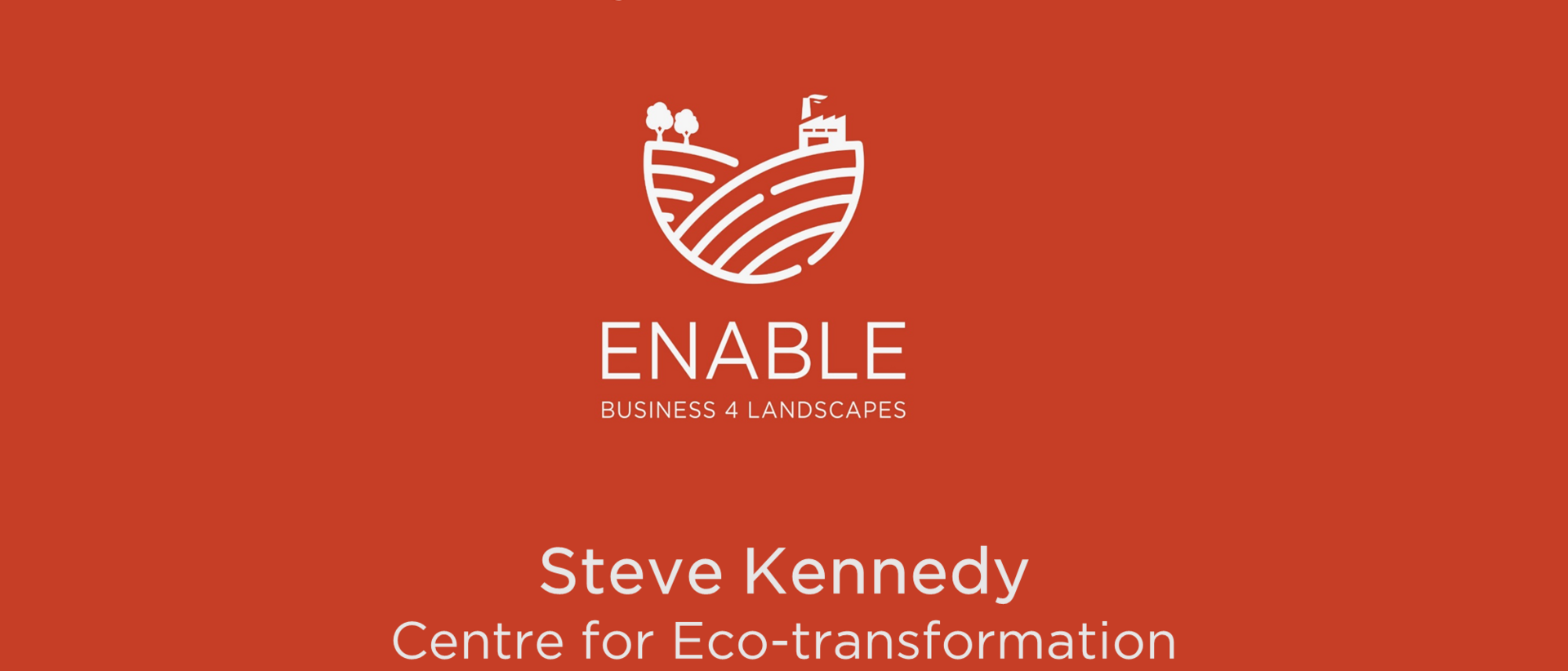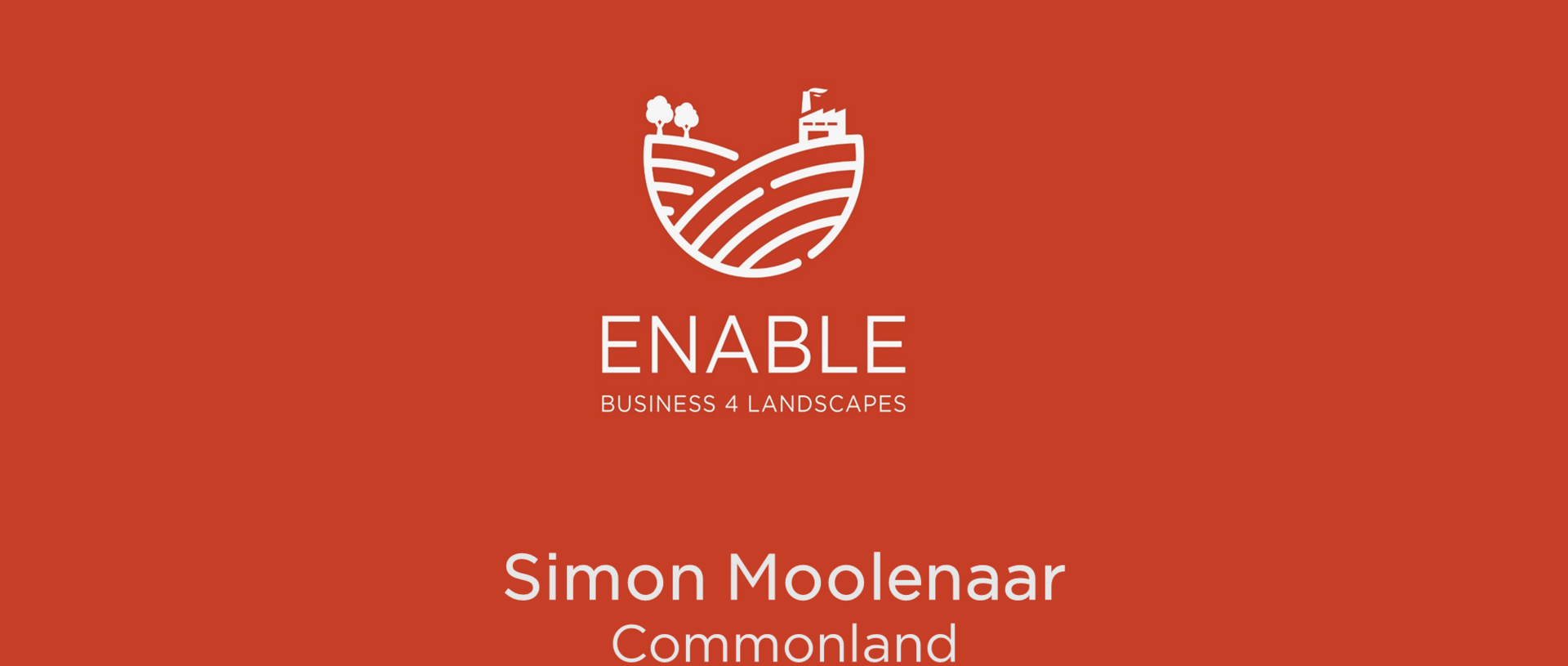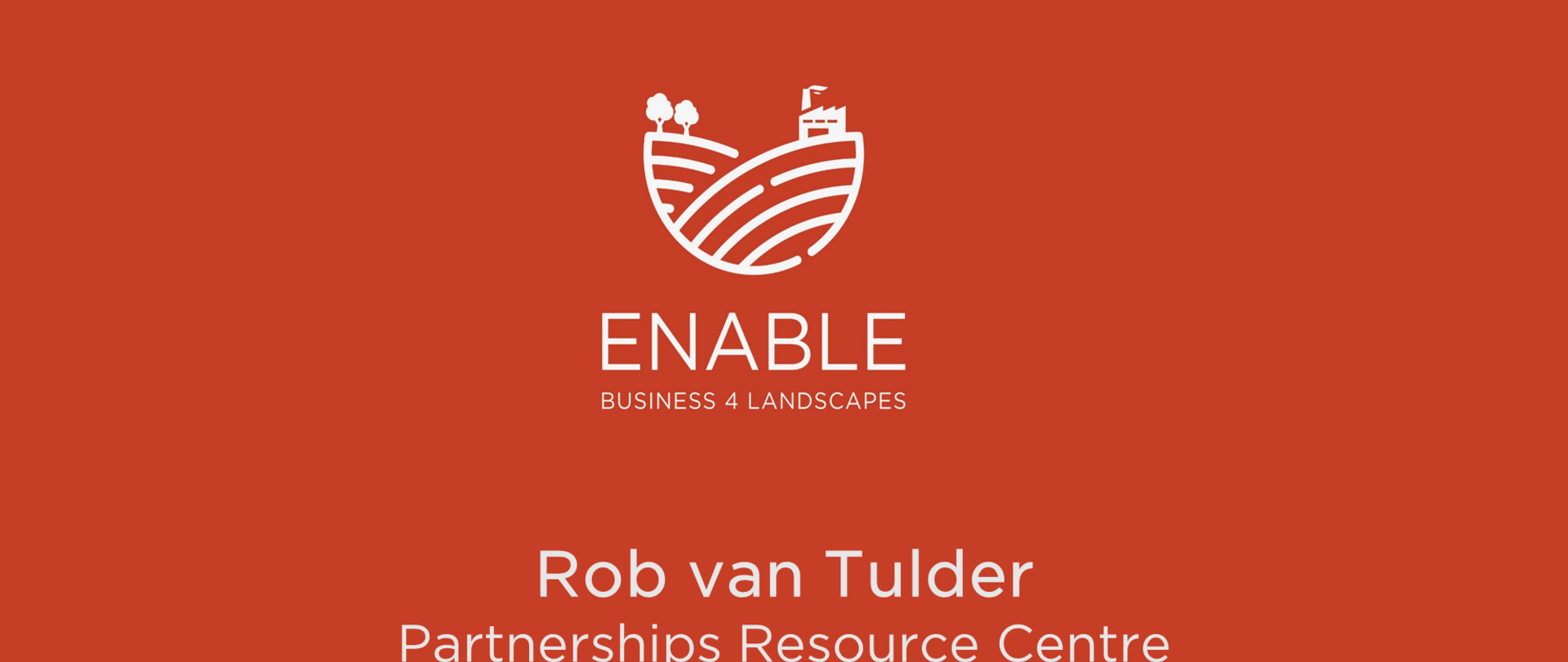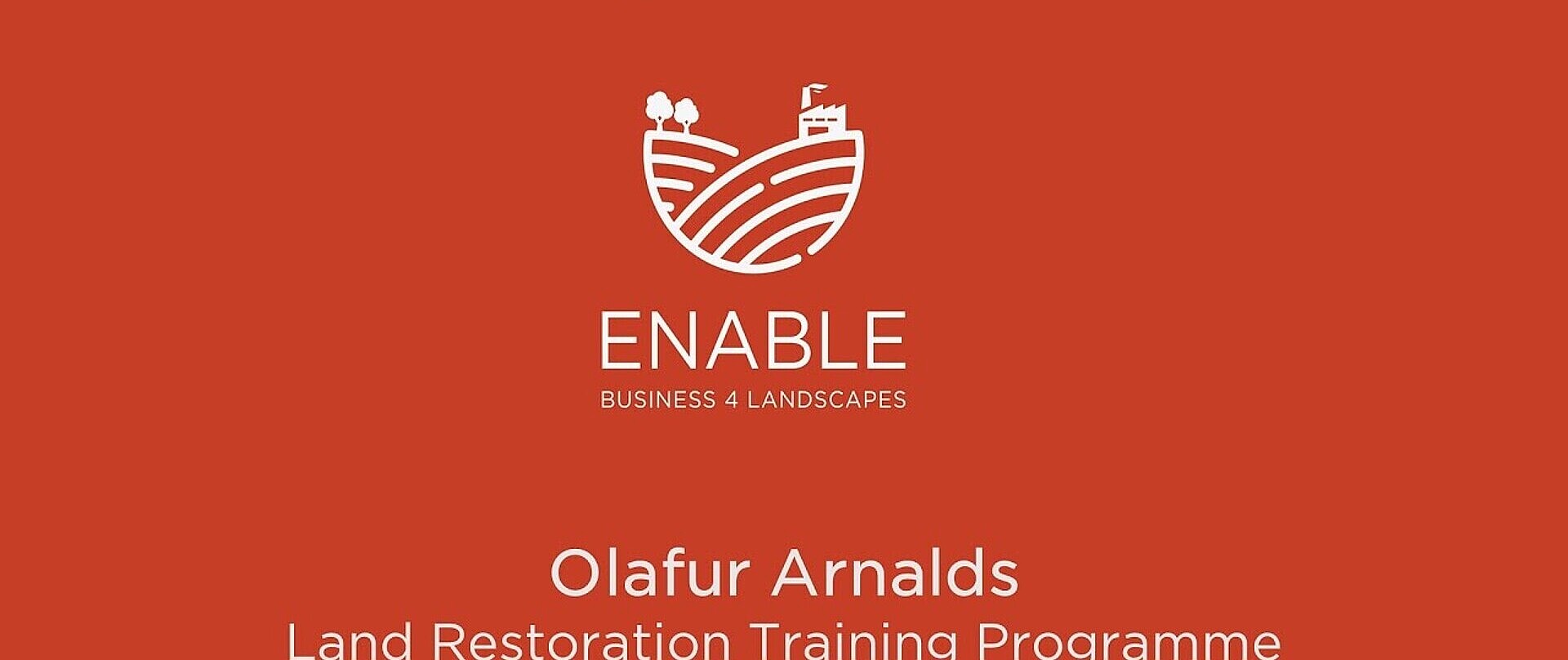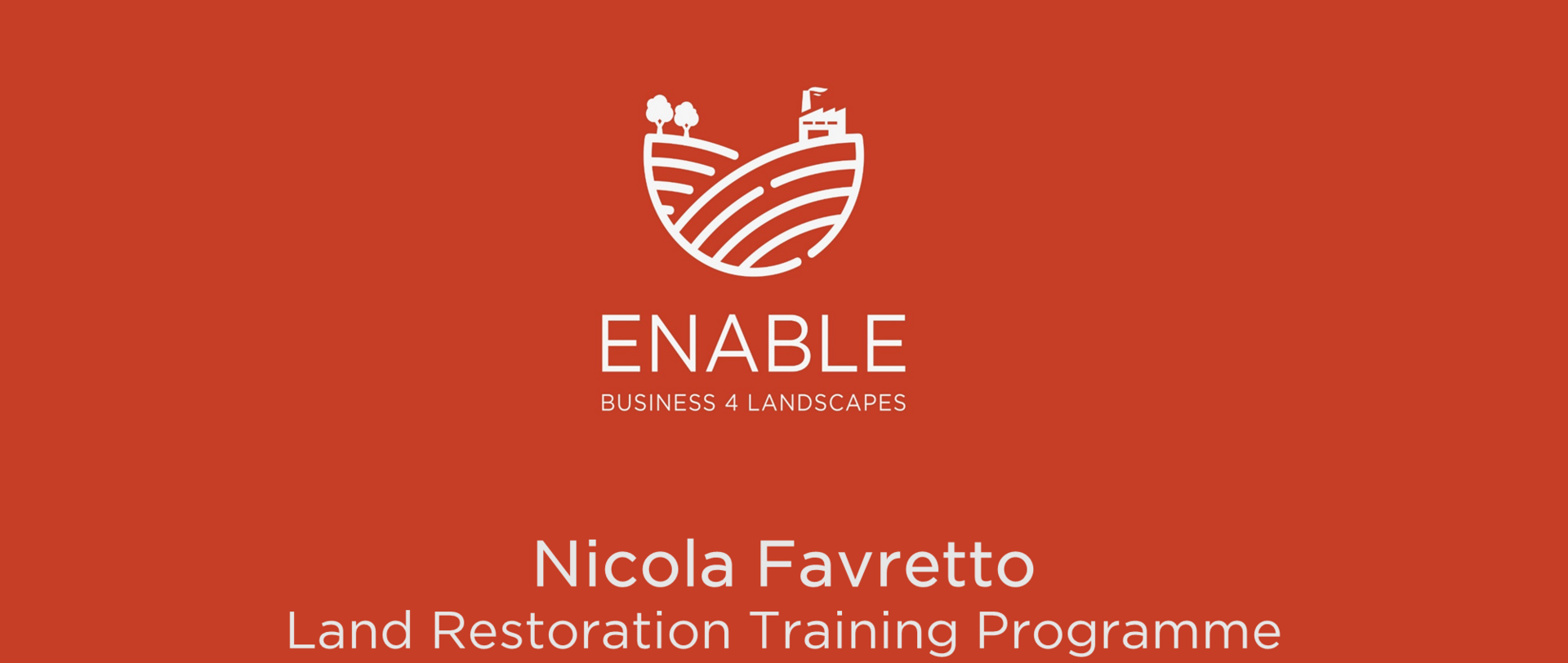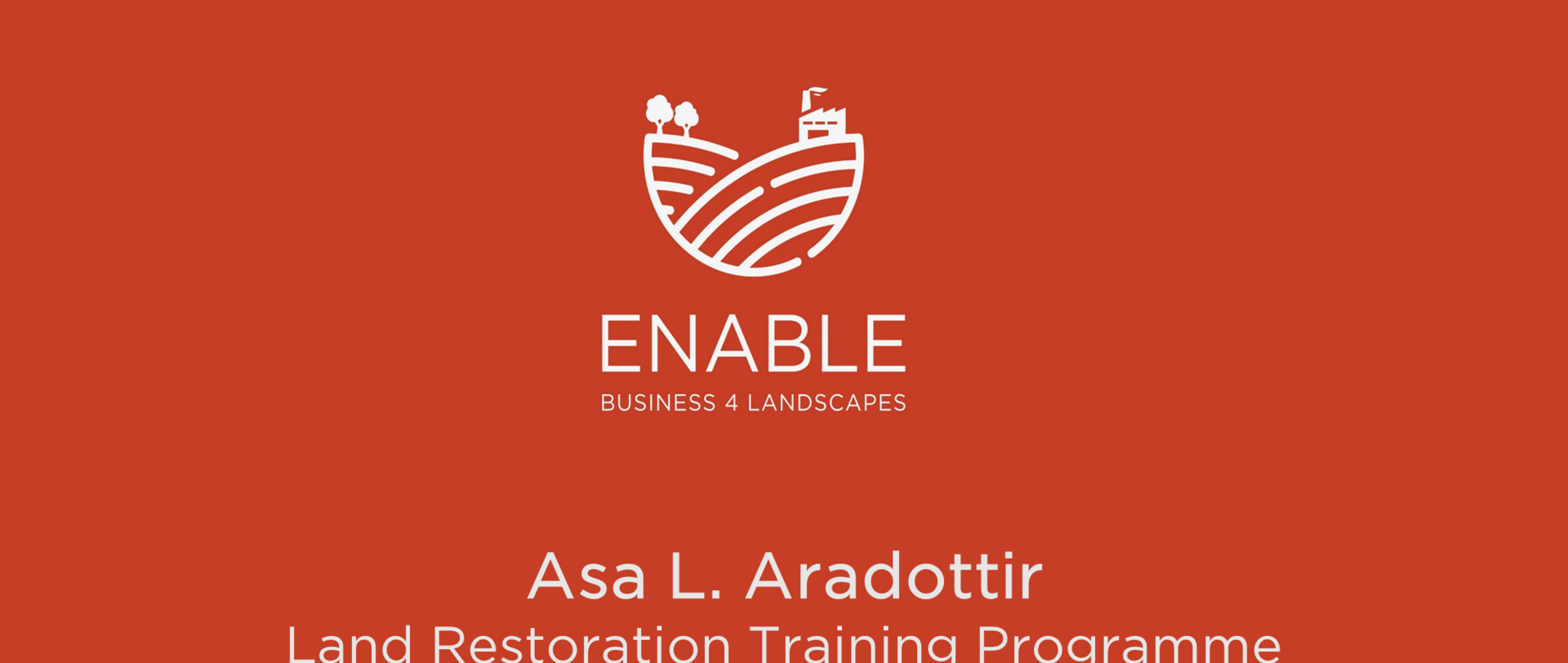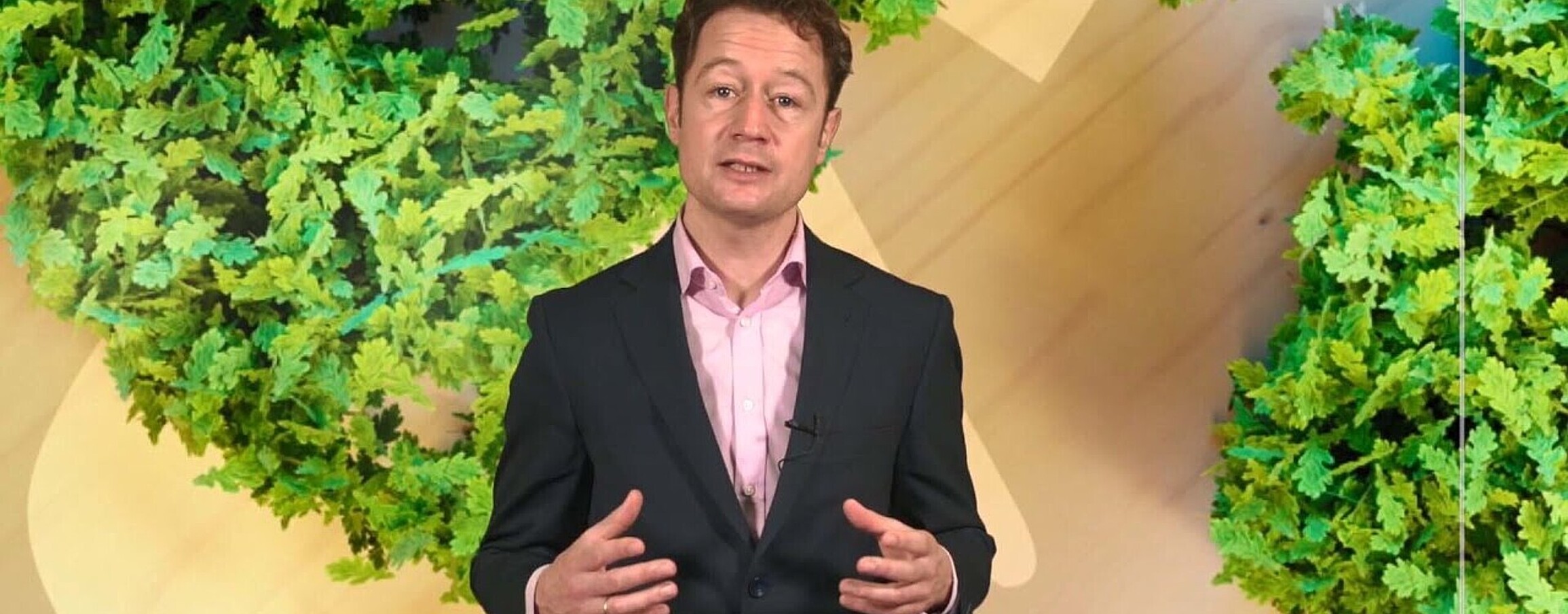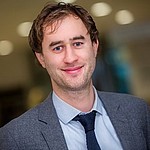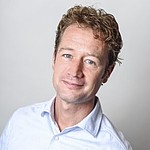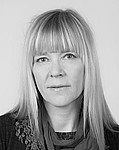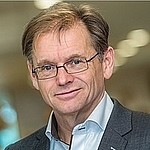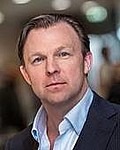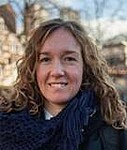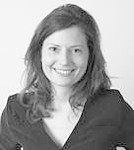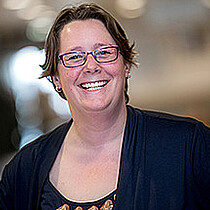Why ENABLE?
Land degradation is a serious and widespread problem across Europe. It is not just an environmental problem, but also a social and economic one. Degradation of land is linked to other major contemporary issues that Europe will have to tackle, including climate change, food and water security, and a decline of biodiversity. These problems are directly related to well-being, security, poverty, and migration. This makes restoring and conserving landscapes one of the most important tasks of our time.
Currently there are wide gaps between economy and ecology, theory and practice, global and local approaches, and between business and environment, which hinder successful and wide-scale landscape restoration built on sustainable business cases.
To achieve the goal of handing over healthy and resilient landscapes to future generations, the ENABLE project partners from the public, private, and non-profit sector contribute resources, knowledge, and methods. Together, they will develop high quality education targeted at business students and professionals to bridge the gaps, create awareness about the functioning ecosystems and the benefits of sustainable landscape management.
The ENABLE project will contribute to tackling global challenges laid out in the UN’s 17 Sustainable Development Goals, and specifically the 15th goal on Land Degradation Neutrality. The ENABLE consortium also makes an important contribution to achieving the EU’s 6th Environment Action Programme (Decision No 1600/2002/EC) which declares a necessity to protect land against degradation.
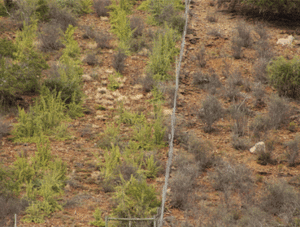
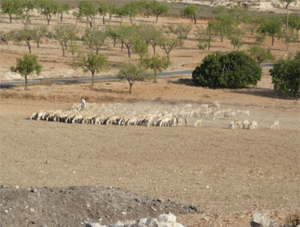
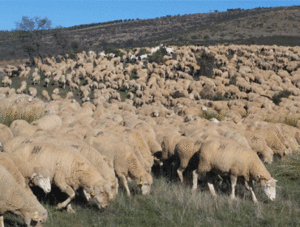
Partners
Get to know the ENABLE partners
The ENABLE project is a partnership of organisations from the private, public, and non-profit sector, and is co-funded by the Erasmus+ programme of the European Union. Each partner contributes a different set of resources, knowledge, and skills which makes it possible to develop a holistic and applicable high-quality education platform for business-driven landscape restoration.
Project leader: Eva Rood, Co-director, RSM Centre for Eco-Transformation
Rotterdam School of Management, Erasmus University
As one of Europe’s largest international business schools, RSM reaches an expansive international audience of future and current leaders through its broad portfolio of programmes, services and academic activities. Building on the entrepreneurial tradition of Rotterdam and the Netherlands, RSM provides management research, education and societal engagement so people and organisations can thrive worldwide. In keeping with our commitment to the UN’s 17 Sustainable Development Goals, we help students, academics and people in business become critical, creative, caring and collaborative thinkers and doers.
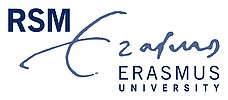
Partnerships Resource Centre
The Partnerships Resource Centre (PrC) is affiliated with RSM but is an independent and flexible learning network of professionals, academics, and practitioners from around the world who share and collect information on selecting appropriate partnerships to increase their efficiency and impact.
Case Development Centre
The Case Development Centre (CDC) is an international unit at RSM, developing and supporting case-based management education with a European focus. The CDC turns real-life business challenges into powerful learning tools by constructing case studies that are used to train and develop observant, inspired, and pragmatic business leaders. Through case-based learning these future business leaders can apply managerial knowledge in a sustainable and respectful way. The CDC also delivers workshops on case writing and case teaching.
Commonland
Commonland is an internationally operating Dutch organisation that realises large-scale landscape restoration with local farmers, land users, and experts, based on a holistic approach that includes the development of sustainable business cases. Its mission is to contribute to a large-scale landscape restoration economy, aligned with international policies and guidelines. In this way, Commonland contributes to the Bonn Challenge, a global effort to restore 150 million hectares of the world’s degraded and deforested lands by 2020. Commonland consists of a foundation and two impact companies: 4 Returns Projects and 4 Returns Partners. The foundation guards and develops the 4 returns restoration approach and works in close cooperation with scientific institutions, business schools, and experts from non-governmental organisations. 4 Returns Projects develops local companies’ and farmers’ initiatives that grow landscape restoration projects. They work on sustainable business cases with different stakeholders in the field, taking all interests into account. To build on their present strengths, these local companies partner with existing initiatives. 4 Returns Partners provides advisory services to third parties that wish to implement long-term restoration projects. This way, Commonland shares its lessons with others who also want to accelerate the process towards the establishment of a restoration industry.
CEBAS-CSIC
The Spanish National Research Council (CSIC) is the largest public research institution in Spain and the 3rd largest in the EU. Its mission is to develop and promote multidisciplinary scientific research to contribute to advancing knowledge and economic, social and cultural development, as well as to train staff and advise public and private entities on this matter. It encompasses everything from basic research, the transfer of knowledge and the productive sector and society. CSIC institutes collaborate intensively with (inter)national universities in the research and training of future generation researchers and practitioners. Its multidisciplinary and multi-sectoral research activity is organised around eight scientific areas covering issues from humanities and social sciences to agriculture, food sciences, and natural resources. CEBAS-CSIC, the center for applied soil science and biology, is a multidisciplinary center advancing applied research in the fields of Agricultural Sciences, Food Science and Technology, and Natural Resources. CEBAS-CSIC is specialized in transdisciplinary research in semiarid areas on the development and assessment of sustainable land management strategies contributing to food security, food quality, restoration and protection of (agro)ecosystems. The objective is to support regional, national and international policy development to protect human well-being and solve urgent problems such as water scarcity, environmental sustainability, food security, climate change adaptation and mitigation.
United Nations University - Land Restoration Training Programme
United Nations University (UNU) is a global think tank and postgraduate teaching organisation. The mission of UNU is to contribute, through collaborative research and education, to efforts to resolve the pressing global problems of human survival, development and welfare that are the concern of the United Nations. The Land Restoration Training Programme (UNU-LRT) located in Reykjavík, Iceland works on achieving the UN’s Sustainable Development Goal No. 15 which includes achieving land degradation neutrality and promoting sustainable land management, whereas the Institute for Water, Environment and Health (UNU-INWEH) in Hamilton, Canada works on ensuring sustainable economic growth through management of water resources and promotion of ecosystem health. UNU-LRT follows a unique model that combines biophysical knowledge, people’s skills and leadership skills in its training activities which equips fellows with appropriate knowledge, courage and confidence to act on land based challenges. UNU-INWEH is not a partner of ENABLE, but its support in the preparation phase has been instrumental to the success of the consortium.

Nova School of Business and Economics
Established in 1978 as part of Universidade Nova de Lisboa, Nova School of Business and Economics (Nova SBE) has become one of the leading European schools in Economics, Finance, and Management, offering Undergraduate, Masters, PhD, MBA, and Executive Education programs. It is one of the few business schools in the world with triple-crown accreditation awarded by the three principal international institutions (EQUIS-EFMD, AMBA, and AACSB1), and its Masters, Executive Education, and MBA programs are present in the main international rankings. Additionally, the school remains the only business school in Portugal to hold the coveted 5 Palms distinction confirming its category of “Universal Business School”, among the top 100 business schools in the world.

Advisory Board
The ENABLE project is overseen by an advisory board of selected members representing stakeholders, appointed by the ENABLE consortium partners.
- Business is represented by the World Business Council for Sustainable Development
- Experts are represented by the Economics of Land Degradation, and University of Leeds
- Policy makers are represented by UN Convention for the Combat of Desertification, and IUCN Commission for Ecosystem Management
ENABLE is co-funded by the Erasmus+ programme of the European Union under agreement number-2016-1-NL01-KA203-023013.
The sole responsibility for the content of this website lies with the ENABLE project and in no way reflects the views of the European Union.

4 Returns
The ENABLE consortium uses the 4 returns approach, developed by Willem Ferwerda (Founder and CEO of Commonland and Executive Fellow Business & Ecosystems at Rotterdam School of Management, Erasmus University (RSM) and one of the main frameworks taught and applied in education tools under development by ENABLE.
The 4 returns are:

Commonland is a landscape restoration organisation (a foundation and two companies) that aims to restore degraded landscapes and turn them into landscapes that deliver social, economic and ecological value to local farmers and residents, investors, and authorities, and bring back inspiration. Commonland’s projects in Australia, Spain, the Netherlands and South Africa provide valuable real-life examples of how business-driven landscape restoration can take place and how the 4 four returns framework can be applied.
Ferwerda has pointed out that business schools can play an important role in promoting business-driven ecological restoration. Business-trained professionals have valuable skills – such as researching and developing innovative business cases, and designing profitable and sustainable revenue models.
“Of the many skills [business schools] can bring to ecological restoration, one of the most important is researching and teaching business development. Business school graduates are trained to find innovative business cases. Business schools also gather and disseminate knowledge about financial modelling and blended finance. A typical project stimulates a variety of money streams into the area, locally generated and externally funded. Managing this takes a special skill set.”
Willem Ferwerda, July 2016, RSM Discovery
If you are interested in hearing Willem Ferwerda’s story and perspective on the role of businesses and universities in landscape restoration – read this interview with the Commonland founder here.
At Commonland’s website you can find more information on the company’s current projects, its mission and history, and other resources.
Deliverables
This Strategic Partnership project will ENABLE:
- Activities that help to attune curricula to current and emerging labour market needs and equip the young generation with transversal skills such as entrepreneurship, by developing active cooperation between HEI and partners from outside academia: enterprises, professional organisations, business and local/regional bodies
- The strengthening of links between education, research and business to promote excellence and regional development;
- The creation of an inter- and transdisciplinary educational framework with innovative e-learning components, such as a MOOCs, and on-line/interactive cases that will help bridge the gap between economy and ecology, business/environment, theory/practice, global/local and help establish a landscape-restoration industry
- The support of activities to develop innovative strategies to boost mobility or ways to remove obstacles to mobility in higher education providing more opportunities for students to gain additional skills through study or training abroad
- The teaching and training of students to be future generators of sustainable value for business and society at large and to work for an inclusive and sustainable global economy
- The creation of bridges between economy and ecology
- The contribution to improved levels of skills for employability and new business creation
- The knowledge triangle work, including by inter-disciplinary cooperation.
Part of the solution: ENABLE
Interview with Eva Rood, Project Leader of ENABLE
How did the ENABLE project start?
The grounds for the ENABLE project were laid when Commonland founder Willem Ferwerda became Executive Fellow of Business and Ecosystems at RSM and to help fulfil his vision that economy and ecology needed to join forces in order to tackle the grand challenge of land degradation and restoration. After a couple of years of developing our collaboration, we felt we were ready to submit a proposal to the European Union and we found great partners from our joint networks. The proposal was granted, and we are really grateful for the Erasmus+ programme of the European Union for having accelerated our collaboration.
What are the greatest challenges of combating land degradation and how is ENABLE striving to address them?
What all of the partners of the ENABLE consortium realise is that we need to join forces in order to figure out the approach for this wicked problem of land degradation. It’s a typical problem where ecology and economy need each other and this is where the four returns models comes in. So we are trying to jointly come up with models that deliver the financial, social, natural return and return of inspiration instead of only financial capital or only natural capital.
What can students expect from the MOOCs?
Our first MOOC explains the basics of land degradation, ecosystem services, the economics of ecosystem services and also some business modelling and partnership dynamics. So it shows how the different disciplines relate to land degradation and land restoration. The second MOOC digs a bit deeper into how to design a sustainable business model that addresses all of the four returns. And we illustrate how this works by talking about three different landscapes: Iceland, Portugal and Spain. It’s an intriguing process to be involved in because we realise that we speak different languages and we are trying to design one common language, which is both super exciting and a super challenging endeavour.
How do you envision the new generation of professionals?
What we hope to achieve is that we educate business and environmental professionals to become aware of the theories that are going on in other disciplines than their own expertise. Moreover, professionals who are wise enough to ask the other disciplines for help or for contribution. So creating awareness on the added value of collaborating with experts from different disciplines is the key to raise a new generation of professionals equipped with the skills and knowledge required to restore landscapes.
What is your I will statement and how does it relate to this project.
I formulated my I WILL statement at least 10 years ago, maybe even 15... . It has always been "I WILL connect" and that's exactly what I'm doing now, connecting disciplines and connecting the ENABLE consortium partners. Connecting relates to the core of the ENABLE project, to find connections and to design a common language, a common understanding.
How do you hope the ENABLE project contributes to positive change?
I know the ENABLE project contributes to positive change because – that’s what I love about it – it’s a hopeful approach. We are dealing with a gigantic problem and we offer hope and solutions and possibilities. We know it's a challenge, we know it's really hard to tackle. But we focus on how we can make it happen considering all those difficult aspects. And it's tough because it will take a generation to restore land and it will take many stakeholder meetings and tough negotiations about trade-offs. But we will also deliver results. And that's really inspiring to work with a consortium that can deliver hope and results. So in that sense it delivers the return of inspiration. So I think it's an excellent example of positive change.
ENABLE is one of your projects. What else are you doing?
I am director of RSM's Positive Change initiative which is finding ways for RSM to live up to the mission to be a force for positive change.
And what is next?
Our finance ends in September 2019 and we are exploring the possibilities to find new funding. If people have tips, you can contact us at enable@rsm.nl [laughs]. The ENABLE consortium is constantly looking for partners to collaborate.
Cases
Business students, and even seasoned professionals, can learn from the experiences of other organisations and decision-makers. Therefore, the ENABLE consortium developed five real-life cases of exceptional business and management experiences in a landscape restoration context; these were turned into powerful learning tools.
1. The Alvelal project in Spain.
The ‘Altiplano Estepario’ area in Southern Spain is an example of a successful restoration initiative. This case describes collaboratively developing integrated sustainable business models for rainfed almonds.
Read the case.
2. The Arento Group in Spain - Towards a Sustainable Future.
The Arento Group case examines how an agricultural business tries to make the transition towards higher levels of sustainability
Read the case.
3. From Bare to Birch - Large-Scale Ecosystem Restoration in Iceland.
The case examines how to transition from barren desertified land to a resilient and healthy woodland that can provide ecosystem services to the people in the area and beyond.
Read the case.
4. Reborn from Ashes - The Alvares Project.
The North and Centre of Portugal encompass many productive forest areas that are particularly prone to fires. In the middle of this burnt region, the parish of Alvares stands as a representative case of the entire territory: consecutive decades of rural exodus dramatically changed the economic structure in which its population used to subsist.
Read the case.
5. Sustainable Finance for Landscape Restoration in Spain.
This case builds on the same initiative as case 1, but focuses on mobilising finance for the farmers who take part in the cooperative (Alvelal) and for the trading company (Almendrehesa). The main challenge is to find a way to scale the initiative through involving private and institutional investors.
Read the case.
This case was turned into an online, ‘rich’ case.
We have used these teaching cases with business students and practitioners, as well as environmental students and practitioners.
Participants indicated that they gained more awareness and a deeper understanding of the complexity of the issues, and the need to combine multiple perspectives.
ENABLE is co-funded by the Erasmus+ programme of the European Union under agreement number-2016-1-NL01-KA203-023013.
The sole responsibility for the content of this website lies with the ENABLE project and in no way reflects the views of the European Union.

